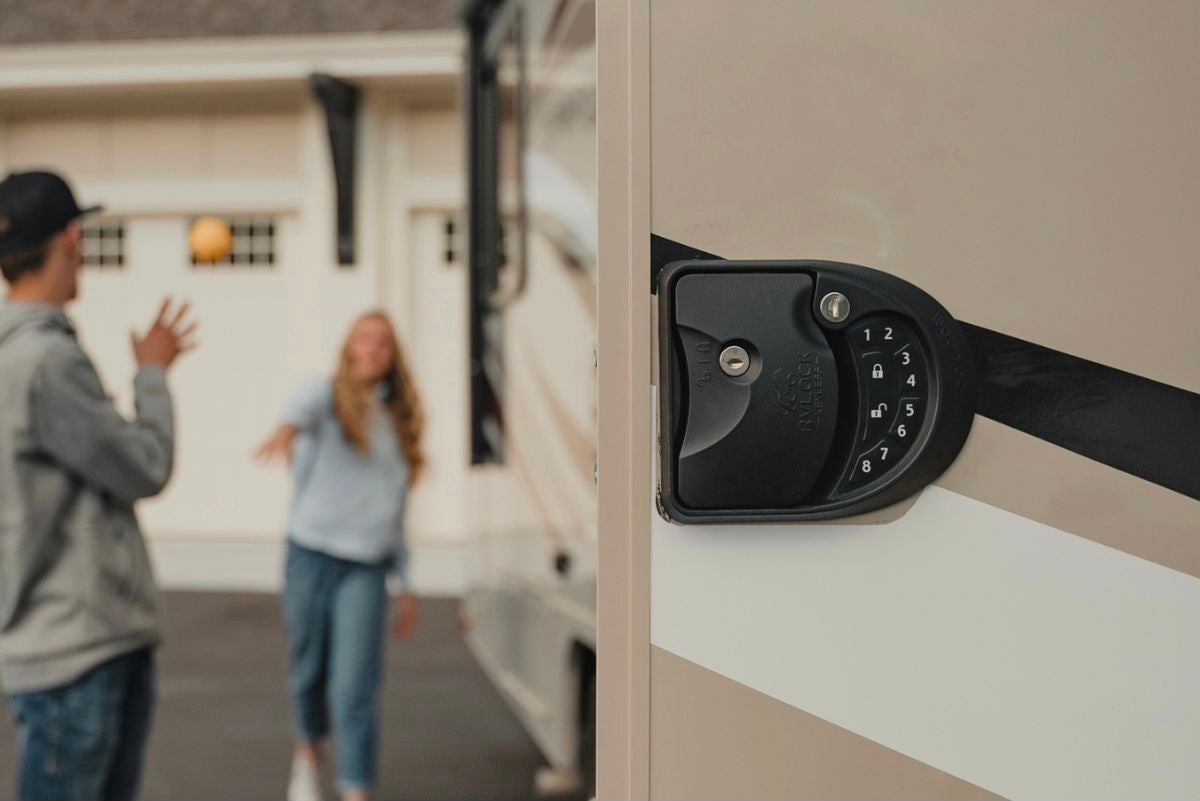Your RVLock handle is a crucial part of your RV's security and convenience. However, like any mechanical component, it's important to do what you can to keep it functioning properly. In this blog, we’ll share common mistakes to avoid that will keep your lock in optimal working condition and prevent unnecessary damage. Let us help you safeguard your RVLock handle from common issues and extend its lifespan by discontinuing these 3 actions:

Neglecting Regular Maintenance:
Regular maintenance is the backbone of a long-lasting and trouble-free RVLock handle. Dust, grime, and debris can accumulate on the handle, working their way into the mechanical components and causing malfunctions over time. Cleaning with a soft cloth and mild soapy water will not only keep your handle looking good but also help prevent the buildup of damaging substances. By checking for wear and tear on a regular basis, you can identify minor issues before they escalate. Cracks, loose components, or signs of corrosion should not be ignored, as addressing them promptly can prevent further damage. Neglecting to change the batteries can lead to sudden lockouts, leaving you in a precarious situation. It's wise to replace the batteries as soon as your lock gives you warning signals or you notice a decrease in performance. Learn more about your RVLock’s battery life here.
Power-Washing:
Power washing your RVLock keyless entry handle might seem like a quick and efficient way to clean it, but it can actually lead to unintended damage. The high-pressure water stream can force water into the handle's internal components, potentially causing electrical malfunctions and corrosion. Moreover, it may dislodge or damage the gaskets and seals that protect the sensitive electronics inside the handle. Instead of using a power washer, it's advisable to clean your RVLock handle gently using a damp cloth and mild soapy water to ensure its long-term functionality.
Exposure to Chemicals:
It's crucial to be cautious about your RVLock handle's surroundings, particularly when it comes into contact with harsh chemicals. These may include potent cleaning agents and solvents, which, if inadvertently applied to the handle, can have detrimental effects. The chemical substances can gradually erode the protective finish of the handle, causing it to lose its luster and even potentially corrode the handle's surface. This corrosion can weaken the structural integrity of the handle, making it less reliable over time and potentially compromising your RV's security. Therefore, it's essential to be mindful of the substances that your RVLock handle encounters to ensure its lasting durability and appearance.

Preserving your RVLock handle is not only a matter of convenience but also a smart investment in your RV's security and functionality. By heeding the advice outlined in this blog, you can significantly extend the life of your handle and avoid the frustration of dealing with a malfunctioning lock. So, as you embark on your next journey, rest assured that your RV is in good hands, ready to keep your adventures safe and hassle-free.
See you on the road!



Share:
RVLock at the Hershey RV Show 2023
The Best RV Parks Near Amusement Parks
6 comments
We recommend using white lithium grease when lubricating internal mechanisms. We don’t recommend WD-40 because it doesn’t work as well.
Just installed this today. I feel so much safer because of its weight and solidness.
Use only automotive quality cleaners and conditioners.
Also like to add that is good to keep the keyboard out of direct sunlight for long periods of time. Rubber and plastic numbers will start to dissipate.
Also do not get drunk and leave your door open in a rain storm. It happened to me and now my electronic part doesn’t work.. " welcome to rv locks" the mechanical lock works awesome just not the key fob(s). So note to self … don’t leave the door open in a rain storm whilst drunk. Cheers! I love this product!